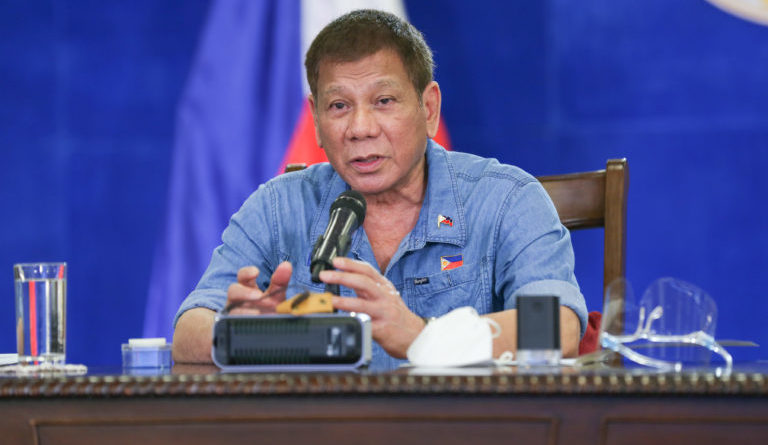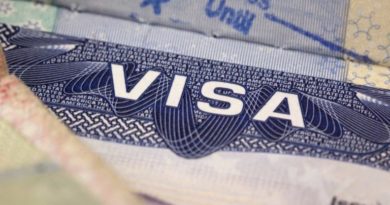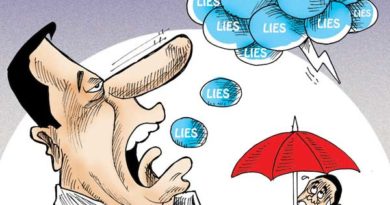COLUMNISTS: HORIZONS- 5 things Duterte should learn from our neighbors
It’s an unmitigated disaster. By every key metric, the year 2020 devastated the Philippines way more than it should have, most especially when compared to our peers.
The facts speak for themselves. In terms of COVID-19, the country posted the highest fatality rate in the region, and for months the highest number of infections throughout East Asia and the Western Pacific. As for the economy, the Philippines’ gross domestic product is expected to suffer a contraction of up to 10 percent, the highest in the region and among the worst in the whole developing world.

The International Monetary Fund (IMF) warns that the Philippines will suffer the worst growth decline in the world over the next five years. Millions of Filipinos, especially the youth, will confront years of employment uncertainty, with the International Labor Organization raising alarm bells over the prospect of a “lost generation” in hardest-hit nations.
The Lancet, an international medical journal, has ranked the Philippines at the bottom third of global rankings in terms of COVID-19 management. Among the top-ranked nations are our close neighbors, from Taiwan (the gold standard) to Malaysia, Thailand, Vietnam, Myanmar, and Cambodia.
A cursory look at our immediate neighbors, almost all of which are fellow developing countries with similar climactic conditions, reveals five key lessons, or “5 S’s,” for President Duterte and his successors.
The first lesson is symmetry. Indonesia’s handling of the COVID-19 crisis is not necessarily ideal, and President Joko Widodo has come under fire for, among others, delayed response as well as overreliance on military generals. But where the Indonesian populist has shown far greater foresight than his Filipino counterpart is in his refusal to exploit a crisis and impose a protracted and excessively strict lockdown.

As a result, Indonesia’s GDP is expected to contract between -1.7 percent and -0.6 percent this year, less than a fifth of the economic devastation wrought in neighboring Philippines, where one of the world’s longest and strictest lockdowns drove countless businesses over the cliff.
Mr. Duterte was right to impose social distancing measures, but it came too late and was extended for far too long. According to the IMF, at some point the lockdown stifled up to 75 percent of domestic economic activity in the Philippines.
Meanwhile, the Philippines’ economic recovery program ($21.45 billion) was among the smallest in the region, far smaller than Indonesia’s $115.78 billion or even Vietnam’s ($26.5 billion). In per capita terms, ours was only bigger than Cambodia’s ($136), Laos’ ($4.30), and Myanmar’s ($1.84).
The second lesson is sovereignty. Many of our neighbors were quick to impose travel restrictions on China, including ethnic Chinese-majority Singapore and Taiwan, in the preventative phase of the pandemic. Even Cambodia’s Prime Minister Hun Sen, long derided as a Chinese lackey, made it clear that it won’t foolishly rely on untested Chinese vaccines, since “Cambodia is not a dustbin… and not a place for a vaccine trial.”
Meanwhile, from Singapore to Indonesia and Vietnam, neighbors have either secured large doses of world-class vaccines or/and are in the process of developing indigenous versions.

The third lesson has less to do with politics than with political institutions. Across the world, nations with strong states, rather than strongmen, have proven more adept in managing complex crises such as the COVID-19 pandemic. The tragic lesson from places such as the United States and the United Kingdom, long admired for their robust democratic institutions, is precisely the erosion of strong states under incompetent and erratic leaders.
The fourth crucial element to the success of many of our neighbors is social cohesion, namely trust in public institutions as well as among citizens. From Taiwan to Vietnam, both democratic and authoritarian regimes have managed to secure people’s cooperation on social distancing and basic hygiene while shunning strict lockdowns altogether.
And this brings us to the final element, which is stewardship. On balance, countries under populist leaders have fared poorly, since populist leaders rely on divide-and-conquer strategies, disinformation, and vacuous macho posturing. While these antics have proven effective during circus-like elections, they not only don’t protect real people from real crisis, they even exacerbate the crisis.
Reflecting on the blunder of incompetence, Charles Maurice de Talleyrand remarked, “This is worse than a crime, it’s a mistake.”











